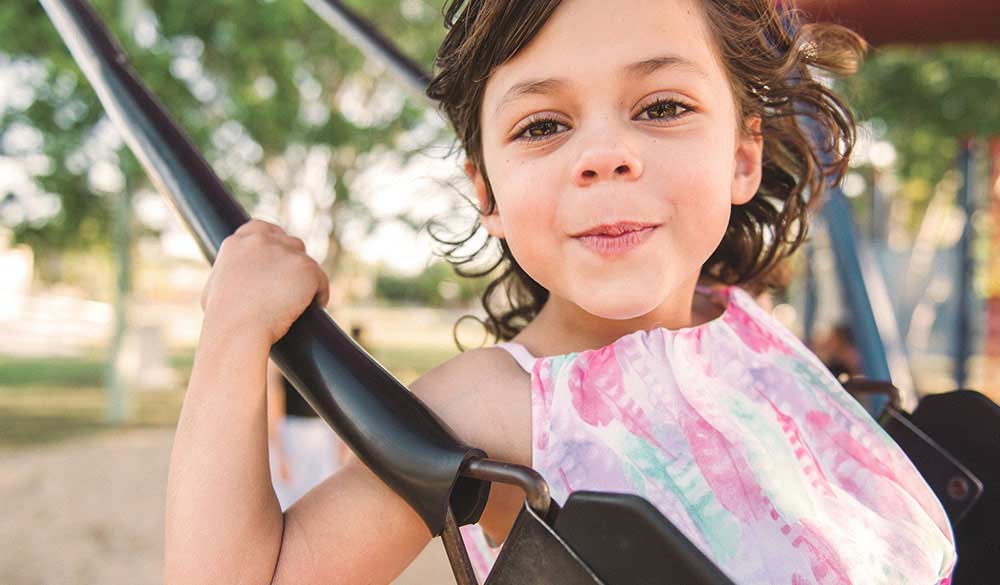We believe the ideal place for a child or young person to be raised is within the family of origin or the extended family, where the family can be resourced to a level that ensures the safety and wellbeing of the child. When this is not possible, the Department of Child Safety, Youth and Women has the statutory responsibility of ensuring the safety of the child or young person.
This may involve removing the child or young person from the family for a short or longer period of time, and placing the child or young person with other family members or in one of the out-of-home care services that are available.
About our residential care service
Our residential care service provides placements for children and young people in houses where care is provided by a team of rostered employees. Children and young people are usually referred to residential care because foster care is not appropriate at the time due to a history of foster care placement breakdowns, challenging or aggressive behaviours, sexualised behaviours or social skills deficits or for emergency placement while a more suitable option is found.
Residential care is a transitional program, with the child or young person progressing to either foster care, re-unification with their family of origin or independent living. Our primary aim is to support young people to build resilience and increase their capacity to reach their potential by assisting in developing a positive sense of identity, social skills and the ability to participate actively in the community.
We utilise the Children and Residential Experiences (CARE): Creating Conditions for Change Program Model developed by Cornell University. As such we apply the following principles to working with children and young people in care:
-
Developmentally focused
All children have the same basic requirements for growth and development. Activities offered to children need to be appropriate to each child’s developmental level and designed to provide them with successful experiences on tasks that they perceive as challenging, whether in the realm of intellectual, motor, emotional or social functioning. Research and theory have shown that activities that are developmentally appropriate help to build children’s self-efficacy and improve their overall self-concept.
-
Family involved
Children need opportunities for constructive family contact. Contact with family and community is one of the few indicators of successful treatment that has empirical validation. Children benefit when their families work in partnership with the child-caring organisation. Retaining children’s connections to family and community bolsters their resiliency and improves their self-concept.
-
Relationship based
Children need to establish healthy attachments and trusting, personally meaningful relationships with the adults who care for them. These attachments are essential for increased social and emotional competence. Healthy child-adult developmental relationships help children develop social competencies that can be applied to other relationships. A child’s ability to form relationships and positive attachments is an essential personal strength and a manifestation of resiliency associated with healthy development and life success.
-
Competence centred
Competence is the combination of skills, knowledge, and attitudes that each child needs to effectively negotiate developmental tasks and the challenges of everyday life. It is a primary responsibility of caregivers and the organisation to help children become competent in managing their environment as well as to motivate them to cope with challenges and master new skills. Learning problem-solving, critical thinking skills, emotional regulation skills, and developing flexibility and insight are all essential competencies that allow children to achieve personal goals and increase their motivation for new learning. All interactions and activities should be purposeful and goal-oriented with the aim of building these competencies and life skills.
-
Trauma informed
A large percentage of children in care have a history of violence, abuse, and neglect resulting in debilitating effects on their growth and development. Adults need to respond sensitively and refrain from reacting coercively when children exhibit challenging behavior rooted in trauma and pain. Trauma sensitive responses help children regulate their emotions and maintain positive adult-child relationships.
-
Ecologically oriented
Children engage in dynamic transactions with their environment as they grow and develop. To optimise growth and development, children must live within a milieu that is engaging and supportive. Caregiving staff must understand that their relationships with the children are part of a larger social-ecology; their face-to-face interactions with children, the activities they promote, and the physical environment in which they work all have an impact on the developmental trajectories of children. Competent staff using skill sets informed by the CARE principles can only be effective when they are working in an ecology of care that will allow them to use their skills.














